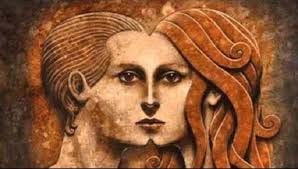Braveheart, the high school quarterback, Home Improvement, the CEO, the rapper. These aren't just random cultural references—they're the molds that have shaped our understanding of what it means to be a man. The narrative is simple: a real man gets what he wants, how he wants it, when he wants it. Rules don't apply to him. Life caters to his needs.
Dominate. Destroy. Diminish.
But these violent thought patterns aren't just outdated—they're actively causing suffering for men who believe them and everyone around them.
It's no wonder we're facing a crisis of masculinity. We still live in a culture where gentleness, kindness, and tenderness in men are often labeled as weakness or questioned in terms of sexuality. A culture that insists men should have the final word, that vulnerability is failure, that strength is measured by how well you can hide your pain.
How many people do you know whose fathers rarely, if ever, showed affection? Some men go their entire lives without hearing "I love you" or "I'm proud of you" from their dads. This Father wound is real, and without healing, it will constantly try to fill itself through external validation—success, respect, status, financial gain—until the man knows he's loved simply for who he is.
The Progressive Push
We've needed the progressive movement to challenge institutions and expand what it means to be a man. Something as simple as sharing emotions is still being normalized. Phrases like "toughen up" or "boys don't cry" aren't just outdated advice—they're attacks on the psyche that make men feel ashamed for experiencing natural human emotions.
Here's the truth we need to embrace: men are feminine too. We care, nurture, embody, accept, support, and need all those qualities directed toward us as well. The liberal values of inclusion and diversity aren't just political positions—they're breaking the rigid mold of manhood that our society has held onto for too long.
Artists, teachers, nurses, and counselors show us how caring professions shape our lives most significantly—not Wall Street or fancy suits. The real impact comes from those who nurture, not those who dominate.
In Jungian psychology, the Anima is the archetypal feminine aspect of a man's psyche, representing his unconscious feminine qualities, such as intuition, empathy, and receptivity. Integrating the Anima is seen as crucial for a man's wholeness and individuation. When men reject these feminine aspects of themselves, they remain fragmented, unable to access their full humanity and creative potential.
Redefining Strength
What does it mean to see weakness as strength? To serve instead of demand? To be open and expressive instead of closed and suppressed?
I believe it means both allowing feminine qualities more authority in our culture and relieving men of having to be everything they think they need to be. Men tend to provide financially and in terms of security, but their spouses and children are usually just asking for their vulnerability, emotional presence, and genuine expressions of love.
A few first steps might look like giving a hug, saying "I love you," or affirming the men in your life when they share their more vulnerable qualities. Men need to know that being a man encompasses both what they think it is and nothing like it at all. Men are lovers not just fighters, feelers not just thinkers, human beings not just performers of masculinity.
Questions
As a man or someone close to a man, what qualities need more expression and acknowledgment?
Where do you get your definition of manhood from? Is it serving you or limiting you?
What traditional or stereotypical narratives do you need to reconsider or redefine?
Quote
"Everyone's more vulnerable than they seem, and I think men are more vulnerable. Once you get close to a man, the whole thing's a facade anyway. I think manhood is fragile." - Alain de Botton




Great article Wes! This is the exact topic I’ve been wrestling with in my own writing. One question that I have yet to find a satisfying answer to is this:
For the men who are already on the path to accepting their entire humanity and exploring their nurturing/feminine side, how do we delicately balance this with traditional masculinity so as to avoid being taken advantage of (or pushed around by) other men who are still firmly in the camp of domineering, aggressive “alpha” behaviour?